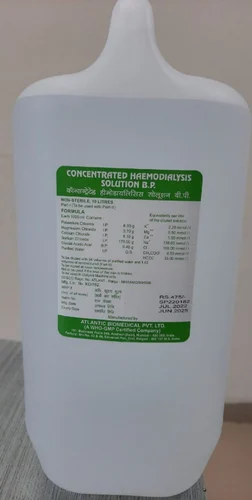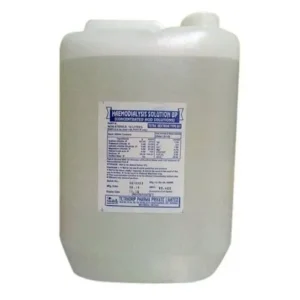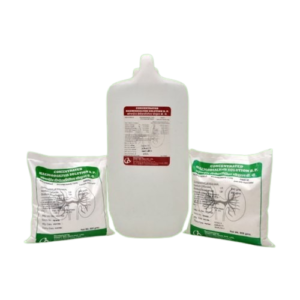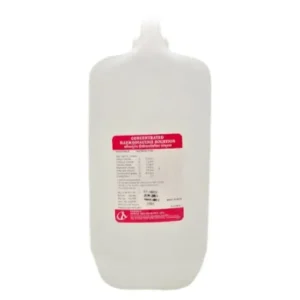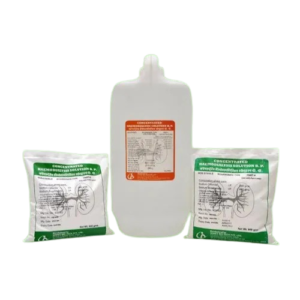Description
This is a Bicarbonate Haemodialysis Concentrate which contains Sodium Citrate as buffering agent replacing significant amount of Acetate, normally present as buffer.
Compared to traditional Haemodialysis Concentrates, “Citrate Concentrate has the following benefits:
- Reduces Heparin need in dialysis patients (upto 40%)
- Increases dialysis dose kt/V (>1.2) and URR (>70%)
- Significantly reduces clotting in case of Heparin-free Haemodialysis
- Better kt/V in case f Dialyzer Reuse due to better clearing of fibres
- No. of Dialyzer re-uses increases significantly (60-100%)
- Does not cause thrombocytopenia (The terms thrombocytopenia and thrombopenia referred to as a disorder in which there its a relative decrease of thrombocytes, commonly known as platelets, present in the blood)
- No Heparin Antibodies Reduces cost of Heparin
- Significant reduction in bleeding episodes if Heparin is eliminated or reduced
- No Heparin-related complications viz Osteoporosis, Puritis, disturbed Lipid Metabolism
- Significantly less or no clotting in patients with frequent dialyzer clotting Elimination of Acetate-related complications (present as buffer in Concentrates)
- Anti-oxidative effects
- Improved acid-base status.
- Reduced inflammation
- * Reduction of Pre-dialytic Beta-2-Microglobulin levels
- Improved tolerance to treatment
- Heparin-induced Myeloperoxidase release causes atherosclerosis propagation not
- present with Citrate concentrate
- Can be used in Liver Failure patients undergoing Haemodialysis those whose dialyzers clot despite large amounts of heparin, those who cannot use heparin, eg, those with heparin antibodies, and patients actively bleeding or who are at risk of hemorrhage
- Citrate dialysate is safe and effective in asi dialysis patients, but it is particularly effective because it improves dialyzer reuse
- Increases the dose of dialysis
- Corrects acidosis
- Improves dialysis in patients who are “dialyzer clothers”
- Enables heparin-free dialysis of patients with antibodies to heparin (HIT] or those who are allergic to heparin
- Enables heparin-free dialysis of patients with acute renal failure who are at risk of bleeding
- Citrate system suppresses dialysis-associated degranulation of polymorphonuclear cells and platelets, and led to reduced plasma level of oxidized low-density lipoprotein.
- Significantly lower plasma level of pro-inflammatory interleukin-1 beta early during CITRATE dialysis are found.
- Citrate-containing dialysis fluid, significantly reduces levels of C-reactive protein and interlelukin-6, with concomitant positive effects on nutritional parameters, when regular dialysis fluid was replaced with acetate-free citrate-containing dialysis fluid was found.
- Furthermore, citrate decreases both apoptosis and necrosis and reduced markers of inflammation. these results indicate that citrate in dialysis may be beneficial when attempting to reduce the high cardiovascular morbidity in HD patients..
The composition of the citric acid dialysis solution is as follows:
PART 1: The acid concentrate (in liquid form) is composed of the following components in each 1000 ml:
Sodium Chloride: 165.00g, Potassium Chlonde: 6.00g, Calcium Chloride: 8.10g. Magnesium Chloride: 3.70g, Citric Acid: 5.70g, H,O. Q.S
PART II: The bicarb concentrate part containing Sodium Bicarbonate: 660-Qg, Sodium Chloride: 240.0g

